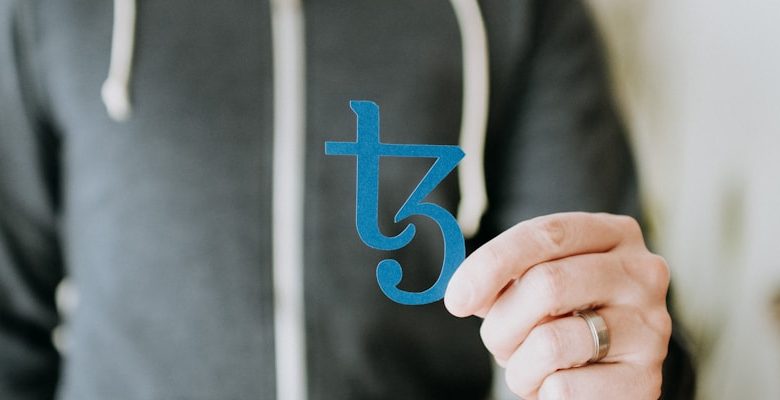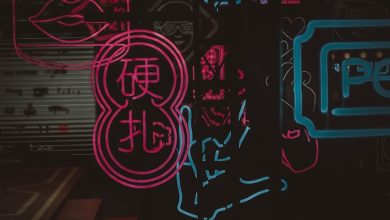The Relationship Between Blockchain and Artificial Intelligence

- Understanding the basics of blockchain technology
- Exploring the applications of Artificial Intelligence in blockchain
- How blockchain and AI can revolutionize data security
- Challenges in integrating blockchain and AI technologies
- The future of decentralized AI on blockchain platforms
- Impacts of blockchain and AI collaboration on various industries
Understanding the basics of blockchain technology
Blockchain technology is a decentralized, distributed ledger system that securely records transactions across a network of computers. It enables the creation of a tamper-proof, transparent, and permanent record of transactions. The data is stored in blocks, which are linked together in a chain using cryptographic hashes. This technology has gained popularity due to its ability to provide transparency, security, and efficiency in various industries.
One of the key features of blockchain technology is its ability to create trust among parties without the need for intermediaries. This is achieved through a consensus mechanism that ensures all participants agree on the validity of transactions. As a result, blockchain technology is often used in situations where trust is crucial, such as financial transactions, supply chain management, and identity verification.
Blockchain technology has the potential to revolutionize many industries by streamlining processes, reducing costs, and improving security. Its decentralized nature makes it resistant to fraud and hacking, making it an attractive solution for companies looking to enhance their cybersecurity measures. Additionally, blockchain technology can increase efficiency by eliminating the need for manual processes and reducing the risk of errors.
Overall, understanding the basics of blockchain technology is essential for grasping its relationship with artificial intelligence. By recognizing the fundamental principles behind blockchain, one can better appreciate how it can be integrated with AI to create innovative solutions for various industries. As both technologies continue to evolve, their synergy has the potential to drive significant advancements in areas such as data management, automation, and decision-making.
Exploring the applications of Artificial Intelligence in blockchain
Artificial Intelligence (AI) and blockchain are two cutting-edge technologies that are revolutionizing various industries. When combined, AI and blockchain have the potential to create innovative solutions and improve efficiency across multiple sectors. One of the key applications of AI in blockchain is in enhancing security measures. AI algorithms can help detect and prevent fraudulent activities on the blockchain network, making transactions more secure.
Furthermore, AI can be used to analyze and interpret the vast amounts of data stored on the blockchain, providing valuable insights and predictive analytics. This can help businesses make informed decisions and optimize their operations. In addition, AI-powered smart contracts can automate complex processes on the blockchain, reducing the need for manual intervention and streamlining transactions.
Overall, the integration of AI with blockchain technology opens up a world of possibilities for innovation and growth. As both technologies continue to evolve, we can expect to see even more advanced applications that will reshape industries and drive digital transformation.
How blockchain and AI can revolutionize data security
Blockchain and Artificial Intelligence (AI) have the potential to revolutionize data security in unprecedented ways. By combining the decentralized and immutable nature of blockchain with the advanced capabilities of AI, organizations can enhance their defenses against cyber threats and ensure the integrity and confidentiality of their data.
One key benefit of using blockchain for data security is its ability to create a tamper-proof ledger of transactions. Each new piece of data is encrypted and linked to the previous one, forming a chain that is nearly impossible to alter without detection. This ensures that data remains secure and trustworthy, even in the face of sophisticated cyber attacks.
AI technologies, on the other hand, can help organizations analyze vast amounts of data in real-time to identify patterns and anomalies that may indicate a security breach. By using machine learning algorithms, AI can learn from past incidents and proactively detect and respond to potential threats before they escalate.
When blockchain and AI are combined, organizations can benefit from a synergistic approach to data security. AI can help improve the efficiency and accuracy of blockchain systems by automating the process of monitoring and analyzing data for potential security risks. At the same time, blockchain can provide a secure and transparent framework for AI algorithms to operate within, ensuring that sensitive data remains protected at all times.
Challenges in integrating blockchain and AI technologies
Integrating blockchain and AI technologies presents several challenges that organizations need to overcome to fully leverage the benefits of both technologies. Some of the key challenges include:
- Lack of interoperability: One of the main obstacles in integrating blockchain and AI is the lack of interoperability between the two technologies. Blockchain systems typically operate on decentralized networks, while AI systems require centralized data storage and processing. Finding a way to bridge this gap is essential for seamless integration.
- Data privacy and security concerns: Both blockchain and AI rely heavily on data, which raises concerns about data privacy and security. Ensuring that sensitive information is protected while still allowing AI algorithms to access the data they need is a complex issue that organizations must address.
- Scalability issues: Blockchain technology is known for its scalability challenges, especially when it comes to handling large volumes of data. When combined with AI, which requires vast amounts of data for training and analysis, scalability becomes an even more pressing issue that organizations must tackle.
- Regulatory compliance: With the increasing focus on data privacy and security regulations, organizations integrating blockchain and AI technologies must ensure that they comply with all relevant laws and regulations. Navigating the complex regulatory landscape can be a significant hurdle for many organizations.
- Talent shortage: Another challenge in integrating blockchain and AI is the shortage of skilled professionals who are well-versed in both technologies. Finding individuals with expertise in both blockchain and AI can be difficult, making it challenging for organizations to implement and maintain integrated systems effectively.
Despite these challenges, the potential benefits of integrating blockchain and AI technologies are substantial. By addressing these obstacles and finding innovative solutions, organizations can unlock new opportunities for increased efficiency, transparency, and security in various industries.
The future of decentralized AI on blockchain platforms
Decentralized AI on blockchain platforms is a rapidly evolving field that holds great promise for the future of technology. By leveraging the power of blockchain technology, AI algorithms can be deployed in a secure and transparent manner, without the need for a central authority to oversee the process. This not only increases the efficiency of AI systems but also enhances their trustworthiness and reliability.
One of the key benefits of decentralized AI on blockchain platforms is the ability to incentivize data sharing among users. By using blockchain tokens as rewards for contributing data, individuals are more motivated to participate in AI training processes. This creates a more robust and diverse dataset, ultimately leading to more accurate and effective AI models.
Furthermore, blockchain technology enables the creation of decentralized marketplaces for AI services. This allows developers to monetize their AI algorithms directly, without relying on intermediaries. By cutting out the middleman, developers can earn more from their work while also providing more affordable and accessible AI solutions to users.
In addition, decentralized AI on blockchain platforms promotes data privacy and security. By storing data on a distributed ledger, users have more control over who accesses their information and how it is used. This not only protects individuals’ privacy but also reduces the risk of data breaches and unauthorized access.
Overall, the future of decentralized AI on blockchain platforms looks bright. As these technologies continue to evolve and mature, we can expect to see a wide range of innovative applications that revolutionize industries and improve our daily lives. By combining the power of AI with the security and transparency of blockchain, we are entering a new era of technology that has the potential to transform the way we live and work.
Impacts of blockchain and AI collaboration on various industries
Collaboration between blockchain and artificial intelligence is revolutionizing various industries, leading to significant impacts on businesses and society as a whole. By combining the decentralized and secure nature of blockchain technology with the advanced capabilities of AI, new opportunities are emerging for improved efficiency, transparency, and innovation.
One of the industries experiencing a transformation is healthcare, where the integration of blockchain and AI is streamlining processes such as medical record management, drug traceability, and personalized treatment plans. This collaboration ensures data integrity, enhances patient privacy, and enables predictive analytics for better healthcare outcomes.
Another sector benefiting from this synergy is finance, where blockchain and AI are revolutionizing traditional banking operations. Through smart contracts and predictive algorithms, financial institutions can automate processes, detect fraudulent activities, and offer personalized financial services to customers. This integration increases security, reduces costs, and improves customer satisfaction.
The supply chain industry is also witnessing the impacts of blockchain and AI collaboration, as businesses leverage these technologies to enhance transparency and traceability in their operations. By utilizing blockchain for secure transactions and AI for predictive analytics, companies can optimize inventory management, reduce delays, and ensure ethical sourcing practices. This integration leads to increased efficiency, lower operational risks, and improved trust among stakeholders.



